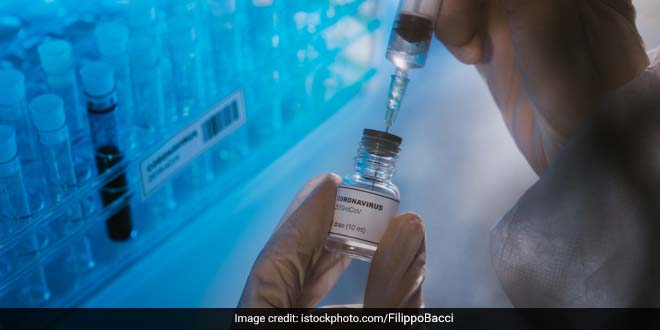Highlights
- India is a hub of vaccine manufacturing: Government official
- The centre is working on a plan for distribution of vaccine among masses
- India plays a key role in WHO’s facility dedicated to vaccines
New Delhi: In the development related to the COVID-19 vaccine across the world, only three vaccine candidates are in phase III clinical trials across the globe. These three coronavirus vaccine candidates are from the USA, UK (University of Oxford’s vaccine) and China, informed the official from the Union Health Ministry on Thursday. While there are 24 COVID-19 vaccine candidates in clinical evaluation, 141 vaccine candidates are in pre-clinical evaluation stage across the world, said the official.
“Once, the phase III clinical trial is done, then they can take concerned regulator’s permissions and proceed for manufacturing the vaccine. These three vaccine candidates who are in phase II are from the USA, UK (University of Oxford’s vaccine) and China,” Rajesh Bhushan, Officer on Special Duty at the health ministry.
WHO (World Health Organisation) in its bulletin issued on July 24 stated that 24 vaccine candidates are in the stage of clinical evaluation across the globe and 141 vaccine candidates are in the pre-clinical evaluation stage. Mr. Bhushan said,
This means that there are 24 vaccine candidates in the clinical trial stage are in phase I, II or III done on human volunteers at multi-centric sites. While 141 vaccine candidates are in research or animal studies are being done under and these are under pre-clinical evaluation stage. Clinical trials for phase I, II of both the vaccine candidates have started. At present, the clinical trial is being done on 1,150 subjects for one of the vaccine candidate at eight sites. At least 1,000 subjects have participated for a clinical trial for another indigenously developed vaccine candidate. As India is a hub of vaccine manufacturing and hence, India would play a key role. When it comes to vaccine distribution can be broadly done in two ways. First, international agencies should develop a system to manufacture and distribute the vaccine. Second, individual countries can negotiate to those people whose vaccine gets successful.
Also Read: COVID-19: Virus Vaccine Put To Phase Three Human Trial In Thousands Of Volunteers
The official further informed that WHO has created a mechanism called–Access to COVID19 Tools (ACT) Accelerator–with an idea that how vaccines, diagnostic kits and medicines can be provided to countries across the world.
Under ACT, a facility called–COVAX has been created by WHO. This is only dedicated to vaccines. In this facility apart from WHO, GAVI (the Global Alliance for Vaccines and Immunisation) and Coalition for Epidemic Preparedness Innovations (CEPI) are part of it and India plays a leading role in both the organizations. So this facility will pool the requirement of vaccine for in all the member countries.
So far, India has not signed any agreement with the pharma companies manufacturing vaccines, Mr. Bhushan said.
There are multiple stakeholders with whom the government is doing a discussion on how the vaccine would be distributed or administered to the masses, said the official.
(Except for the headline, this story has not been edited by NDTV staff and is published from a syndicated feed.)
NDTV – Dettol Banega Swasth India campaign is an extension of the five-year-old Banega Swachh India initiative helmed by Campaign Ambassador Amitabh Bachchan. It aims to spread awareness about critical health issues facing the country. In wake of the current COVID-19 pandemic, the need for WASH (Water, Sanitation and Hygiene) is reaffirmed as handwashing is one of the ways to prevent Coronavirus infection and other diseases. The campaign highlights the importance of nutrition and healthcare for women and children to prevent maternal and child mortality, fight malnutrition, stunting, wasting, anaemia and disease prevention through vaccines. Importance of programmes like Public Distribution System (PDS), Mid-day Meal Scheme, POSHAN Abhiyan and the role of Aganwadis and ASHA workers are also covered. Only a Swachh or clean India where toilets are used and open defecation free (ODF) status achieved as part of the Swachh Bharat Abhiyan launched by Prime Minister Narendra Modi in 2014, can eradicate diseases like diahorrea and become a Swasth or healthy India. The campaign will continue to cover issues like air pollution, waste management, plastic ban, manual scavenging and sanitation workers and menstrual hygiene.
[corona_data_new]



















